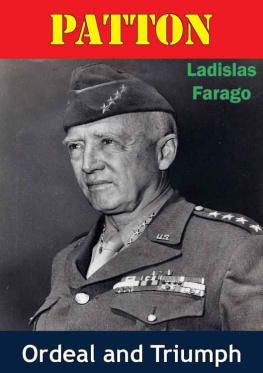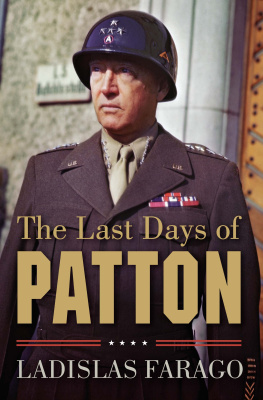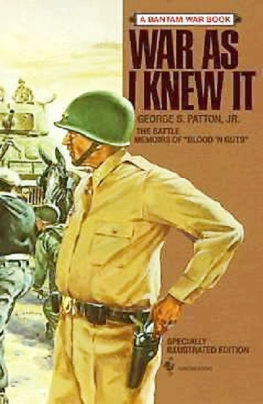CHAPTER ONE ROBERT IS COMING
Shortly after sunset on November 7, 1942, the British Broadcasting Corporation began to sneak into its programs beamed to French North Africa a cryptic message made up of just two words:
Robert arrive ... Robert is coming!
All BBC broadcasts to the Axis-occupied countries had been spiked with such laconic signals, and Robert arrive was but one of a score of coded messages inserted into the programs on this Saturday night. The uninitiated listener, though thrilled or intrigued by the melodrama of such clandestine communications on which he was permitted to eavesdrop, did not know what they portended. Even the growing underground army of men and women fighting the Nazis on the secret fronts of the war could not make head or tail of them unless certain specific messages were directly beamed to them in codes to which only they had the key.
Many of the messages were sheer blinds, concocted and broadcast to befuddle the enemy or send him on wild-goose chases. Others were genuine enough. There were instructions to Allied secret agents behind the Nazi lines to execute prearranged operations.
Robert arrive was strictly bona fide. It was put on the air at this moment to let a small band of anti-Nazis in Algeria and French Morocco know that Robert was coming at last to liberate their countries.
On this quiet and balmy Saturday, French Morocco was enjoying the uneasy peace the men of Vichy had abjectly accepted from Adolf Hitler with the surrender of 1940 at Compigne. At Rabat, the glittering white holy capital city where Mohamed V, his Shereefian Majesty the Sultan of Morocco, and General Auguste Nogus, Vichys Resident General, had their seat, there was no apprehension that the warso remote for the past 28 monthswould suddenly encroach upon this old coast of High Barbaree within the next 12 hours.
In Morocco, the conquerors of France chose to be relaxed and inconspicuous. They were represented by a 200-man detachment of the German Armistice Commission under a monocled general named Erich von Wulisch, a suave proconsul of Hitler, who handled his delicate job with diplomatic tact. The Generals regime had grown soft and lazy on the infectious lassitude of this exotic assignment. Accustomed as he was to the endless flow of such coded signals broadcast by the BBC, which his radiomen kept picking up at regular intervals but which never before had disturbed his own pleasant routine, General von Wulisch paid no attention to the one that was to uproot him just when he felt so safe and smug in his Moroccan sinecure.
It was different on a rooftop in Casablanca. In a shed resembling a pigeon coop, a sinewy, pale young Frenchman was also monitoring the BBC. He was Ajax, the best radioman of the underground in Morocco, operating Lincoln, one in a network of clandestine radios a mysterious group of Americans had set up during the year to be ready, as they put it, for any eventualities. Exactly what those eventualities would be they didnt say, probably because they themselves did not know. A dense fog had descended upon the war, and anyway, Morocco seemed sufficiently off its beaten path to become even a way station on the Allies expected march back to Europe.
For a couple of months, Ajax had handled mostly routine trafficsome intelligence data London and Washington had requested, and information the American agents in Morocco David King, W. Stafford Reid and Kenneth W. Pendar, masquerading as vice consuls attached to the United States Consulate General at Casablancathought would interest their home office in Washington. But in October, King told Ajax to watch out for a special signal announcing the imminent arrival of a certain Robert. Ajax was not told anything more, but he felt in his restive bones that this Robert would be much more than just a wayward traveler.
Now on this Saturday evening he opened up for business at 6 P.M., tuning his radio to the BBC as usual. Fidgety at first when the overdue message again failed to come in, he looked down on the harbor, dark under a starless sky, and out to the sea, as far as he could see beyond the jetties. It was so silent except for the steady murmur of the surf.
What Ajax could make out in the dark was ominous even in its slumbering stillnessthe big, but unfinished, battleship Jean Bart at her berth alongside the Mole de Commerce, a battery of coast defense guns on the El Hank promontory, the 100-mm. guns of Batterie du Port at the other end of the harbor toward Fedala, the farthest Ajax could see. Behind him on the gray Hallicrafter tuned to a whisper, the BBC program was coming from the loud speaker. Then, exactly 38 minutes after 6 oclock, Ajax heard the words: Robert arrive!













